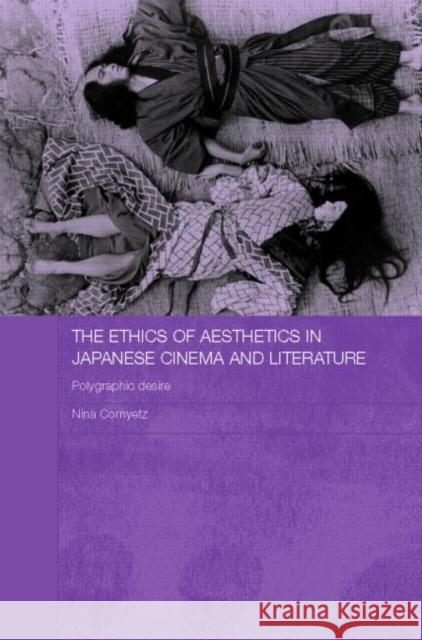The Ethics of Aesthetics in Japanese Cinema and Literature : Polygraphic Desire » książka
The Ethics of Aesthetics in Japanese Cinema and Literature : Polygraphic Desire
ISBN-13: 9780415770873 / Angielski / Twarda / 2006 / 240 str.
The Ethics of Aesthetics in Japanese Cinema and Literature : Polygraphic Desire
ISBN-13: 9780415770873 / Angielski / Twarda / 2006 / 240 str.
(netto: 721,53 VAT: 5%)
Najniższa cena z 30 dni: 730,42
ok. 22 dni roboczych.
Darmowa dostawa!
The Ethics of Aesthetics in Japanese Cinema and Literature is a study of the ethics of modern Japanese aesthetics from the 1930s, through WWII and into the postwar period. What makes this book unique is that Nina Cornyetz opens up the field in new and controversial ways by exploring the tensions and harmonies between psychoanalytic ethics of the drive and socio-political ethics of relation to the other. Rejecting the convention of viewing these as contradictory, Cornyetz insists that the exemplars of psychoanalytic ethics are to the contrary, simultaneously politically ethical. Cornyetz embarks on innovative and unprecedented readings of some of the most significant literary and film texts of the Japanese canon, including works by Kawabata Yasunari, Mishima Yukio, Abe Kôbô and Shinoda Masahiro, all renowned for their texts' aesthetic and philosophic brilliance. The study looks at how relations between individuals and communities in these texts either reiterate or transcend stereotypes, and how desire is or is not limited by sociocultural norms. Cornyetz argues that these authors' and filmmakers' concepts of beauty and relation to others were, in fact, deeply impacted by political and social factors. Ranging from a discussion of fascist aesthetics to heterosexism in modern Japan, The Ethics of Aesthetics in Japanese Cinema and Literature shows how certain changing political, intellectual and artistic issues, as well as sociocultural norms, variously nuanced these texts' depictions of desire and the 'other'. Through her analysis of cultural texts such as the films Woman in the Dunes and DoubleSuicide, Cornyetz challenges the convention that praises the universality of their artistic, existential or intellectual achievements. Rather she seeks to reorient these within a specifically Japanese historical context to give a new and insightful interpretation to the work. This ground breaking study is truly interdisciplinary and will appeal to students and scholars of Japanese literature, film, gender, culture, history and even psychoanalytic theory.











